Traceability
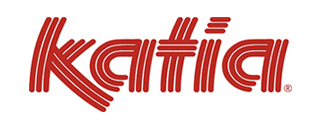
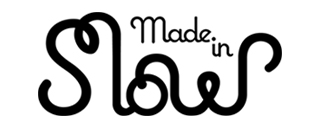
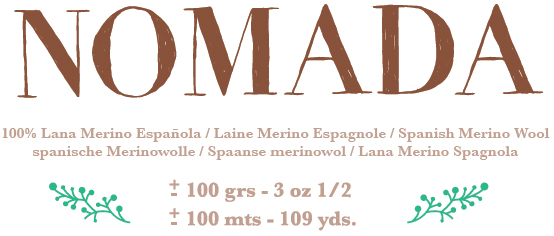
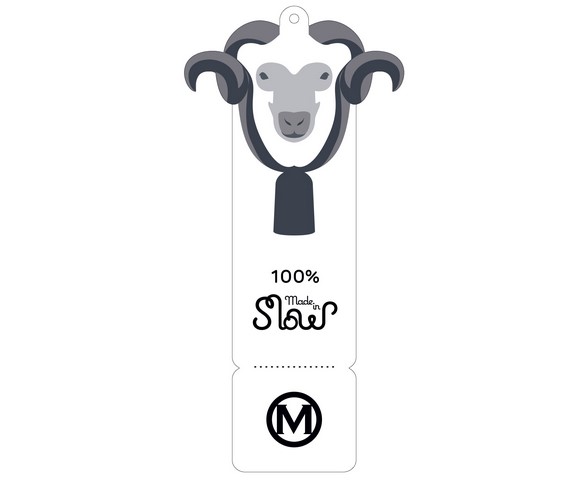
Transhumance in Spain is the transferring or moving of sheep by their shepherds from summer to winter pastures, and vice versa. It arises from the strong seasonal differences in weather in the Iberian Peninsula. This activity was regulated as long ago as the thirteenth century by King Alphonso the Wise, who created a sheep-owners’ guild called the Mesta. It continues down to the present day, keeping alive a unique cultural heritage.
The product you have purchased is part of Transhumance by Made in Slow Project Recovery of transhumant merino wool and comes from livestock Morán, owned by Manuel Morán. Here you can learn more details of their daily life.
Manuel Morán
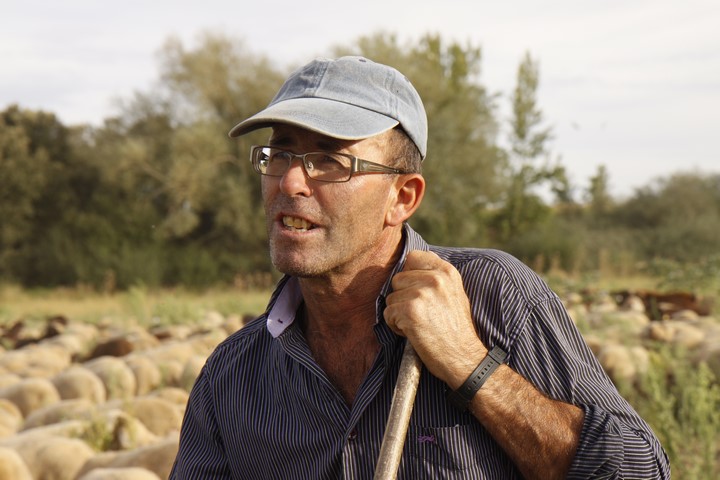 Manuel Morán
Manuel MoránIt comes to inheritance to Manuel Morán his profession since his grandfather, Primitivo Morán, was already a transhumant pastor.
He began to travel to the mountain pastures with the age of 14 and since then has continued the family legacy. He has a singular merino herd: 1300 specimens both males and females retain the horns, a feature that has been lost in females case in other merino livestock. 110 goats from the “Retinta Extremeña” animal breed complete this special herd.
Merino sheep horns detail
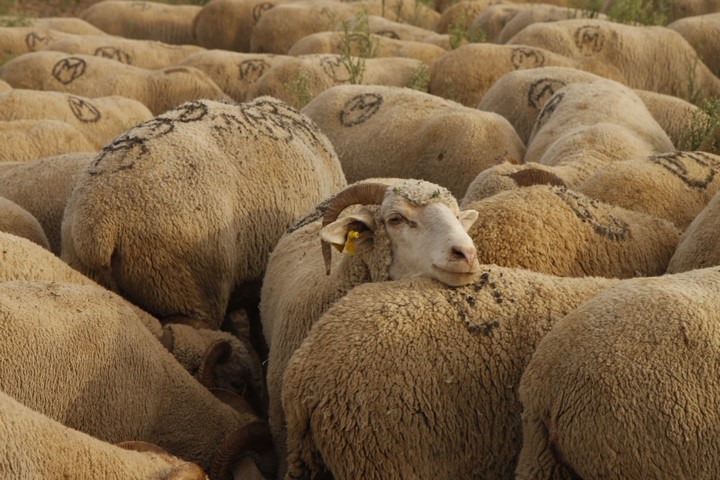 Merino sheep horns detail
Merino sheep horns detailHe moves from Valcabado del Páramo to the green mountain ports of Torrestío de Babia on June, helped by his 12 mastiffs and his 6 Leonese careas. It takes a week to complete this route on foot, ride sharing on the first two days by his brothers Jose and Toño, also transhumants and owners of the “Hermanos Morán” merino Livestock, completing its cycle back in late summer.
Summer pastures, Babia (León)
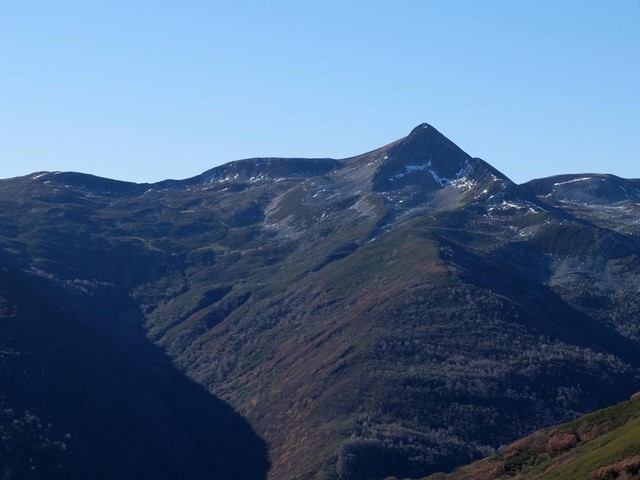 Summer pastures, Babia (León)
Summer pastures, Babia (León)What Manuel loves the most is to perform this activity in the countryside. The care with he looks after its animals is highlighted by his peers: their “mansos” (rams that leads the herd during the transhumant route) are well known and this fact is recognized in the Fiesta del Pastor de Barrios de Luna. He is a professional conscious in the recovery and preservation of animal native species, as the case may Merino sheep, the “Retinta Extremeña” goats, as shepherd dogs (leonese carea and mastiff).
“Mansos” guide the herd during transhumant journey
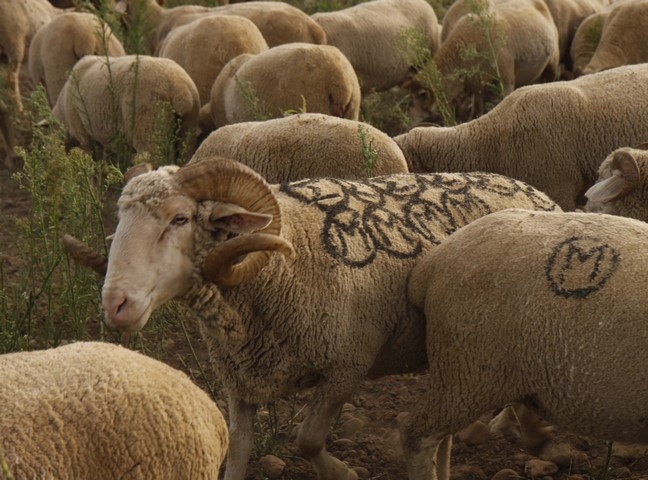 “Mansos” guide the herd during transhumant journey
“Mansos” guide the herd during transhumant journeyThe worst for him is people who are intolerant of his activity. To mobilize livestock interferes with daily activity of towns and cities sometimes: crossing roads, cutting off the traffic, arises situations where Manuel would be feel more understood.
Manuel Moran and his transhumant herd
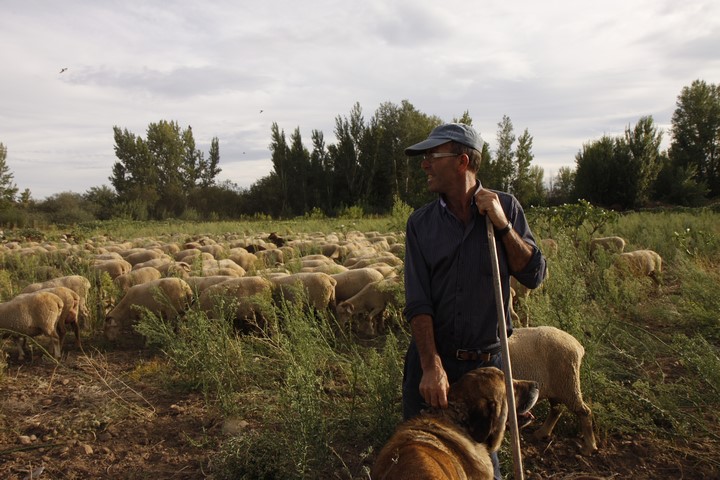 Manuel Moran and his transhumant herd
Manuel Moran and his transhumant herdManuel believes that the continuity of transhumance with current conditions is very difficult. He would invite the heads of the administrations to make the transhumance route so they could feel it in their own flesh: if he were to ask for something, it would be better conditioning of mountain ports infrastructures (huts, drinking troughs and pathways) which are part of the home where shepherds live during the summer months.
Manuel Morán´s transhumant route
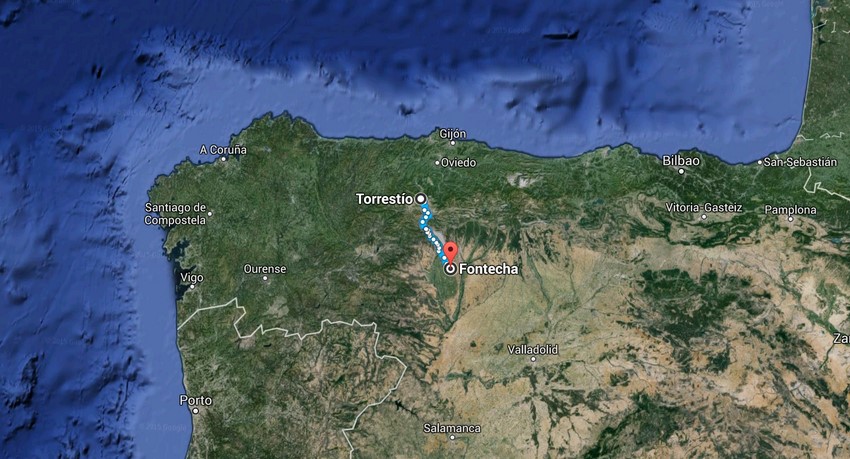 Manuel Morán´s transhumant route
Manuel Morán´s transhumant routeThanks to your purchase, you participate in the transhumant merino wool recovery project Transhumance by Made in Slow. Because each story counts: Made in Slow.

Nomada is a journey to tradition, a way of life and a vision of the future.
This wool collection, 100% of Spanish origin and production, invites us to rediscover transhumance and pastoralism.
The wisdom of an ancient craft whose continual evolution has allowed it to adapt to nature by making the most of its resources without harming them, preserving a priceless biodiversity.
Km 0 wools, made in Spain from native sheep. With a Made in slow hallmark: locally made, with care and respect.
Each ball of yarn is a unique story waiting to be discovered. On every label there is a QR code that identifies the source of each yarn connecting us with each shepherd and their flock.
This is Nomada. Hundreds of faces and stories. A thousand and one sensations. Balls of yarn with a soul that takes us back to our roots.
